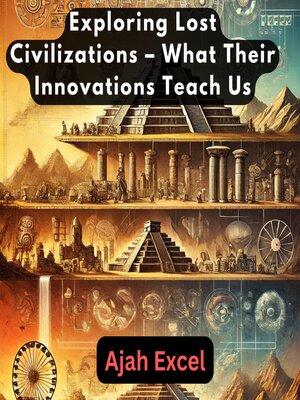
Sign up to save your library
With an OverDrive account, you can save your favorite libraries for at-a-glance information about availability. Find out more about OverDrive accounts.
Find this title in Libby, the library reading app by OverDrive.



Search for a digital library with this title
Title found at these libraries:
| Library Name | Distance |
|---|---|
| Loading... |
This audiobook is narrated by a digital voice.
Exploring Lost Civilizations: What Their Innovations Teach Us is a fascinating journey into the mysteries of ancient societies, unveiling the groundbreaking achievements that defined their existence and continue to shape our world. Through vivid storytelling and expert analysis, this book explores how the ingenuity of long-lost civilizations laid the foundation for modern technology, architecture, and culture, offering lessons that transcend time.
From the architectural marvels of the Maya to the engineering genius of the Romans, Exploring Lost Civilizations dives deep into the innovations that set these societies apart. Readers will uncover the secrets of ancient irrigation systems in Mesopotamia, the precision of Incan stonework in the Andes, and the advanced urban planning of the Indus Valley. These achievements not only demonstrate technical mastery but also reflect the values, priorities, and resilience of these civilizations.
The book shines a light on the remarkable minds behind these innovations—visionaries, engineers, and artisans whose work continues to astonish modern experts. How did the Egyptians align the Great Pyramid so precisely with celestial bodies? What drove the development of metallurgy in ancient China or the astronomical accuracy of Stonehenge? These mysteries are explored with a keen eye for detail and an appreciation for the creativity of our ancestors.
Beyond the awe-inspiring feats, Exploring Lost Civilizations delves into the lessons these ancient societies can teach us today. It examines how their achievements were rooted in sustainability, cooperation, and adaptability—qualities essential for addressing modern challenges like climate change, resource management, and urbanization. It also reflects on the causes of their decline, offering sobering insights into the fragility of even the most advanced societies.







